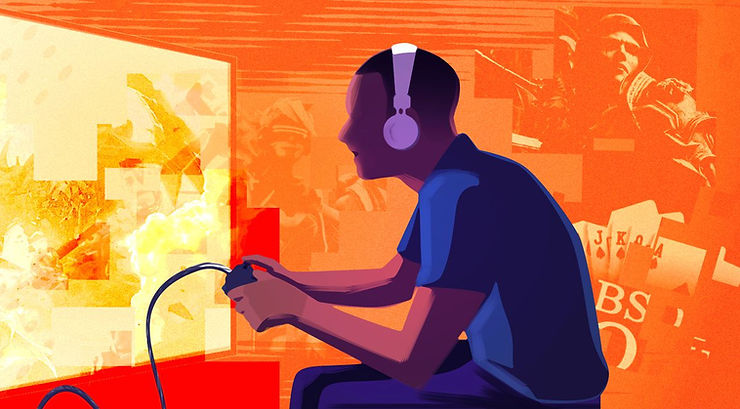By: Niran Zuo
(Niran, you’ve got some excellent information presented here in well-formed sentences. The next step is to group multiple sentences into paragraphs – can you create groups based upon different ideas and then work on paragraph structures with topic sentences, evidence, and explanation? Great start!)
Studies indicate that individuals who frequently engage in video games may be susceptible to a gaming disorder that could result in experiencing auditory and visual hallucinations from the game in their everyday life. According to Dr. Angelica Ortiz de Gortari, a psychologist who studies how video games affect the human mind, video games can cause gaming disorders due to factors such as entering a trance state and experiencing sensory overload.
The consequences of the gaming transfer phenomenon (GTP) are being discussed by a leading group of psychiatrists from New Zealand and Australia. It has been discovered that gaming addiction can lead to GTP, which is when individuals will even prioritize playing video games over meals. This condition can have serious consequences for a person’s health and well-being, warned the psychiatrists. Psychiatrist Kavita Seth also says that an excessive obsession with gaming can cause aggressive behavior when interrupted, posing significant problems. Such behavior can lead to prioritizing gaming over critical activities such as sleeping, eating, attending school, completing homework, and engaging in social interactions.
The Royal Australian and New Zealand College of Psychiatrists estimates that approximately 10% of teenagers are affected by gaming disorder (GD). They have also said that the pandemic has led to a surge in the number of GD cases. Studies indicate that individuals suffering from GD have a higher likelihood of developing gaming-related thoughts and perceptions after ceasing play. Some teens who have spent prolonged periods playing video games have reported experiencing visual and auditory cues from the games in their daily lives. For instance, Dr. de Gortari reported a case where a 17-year-old gamer began seeing “health bars” above people’s heads. The gamer himself recounted that during his intense sessions of World of Warcraft (WoW), his adrenaline would trigger him to perceive health bars above people’s heads.
Daniel Owens, a fellow gamer, reported that playing Portal 2 had a detrimental effect on his sleep, causing disruptions in his sleeping patterns. He described feeling as though his body was asleep while his mind remained active during rest periods, particularly after interacting frequently with sidekicks or narration. Owens even mentioned experiencing a week of insomnia after playing Super Mario Sunshine. Despite this, he acknowledged that it has never affected his waking life. However, he feels that individuals who play video games more often may experience similar effects.
In the end, psychologist Dr. de Gortari believes that this issue, GTP, highlights the need to examine how the human mind will handle increasingly advanced technology.











